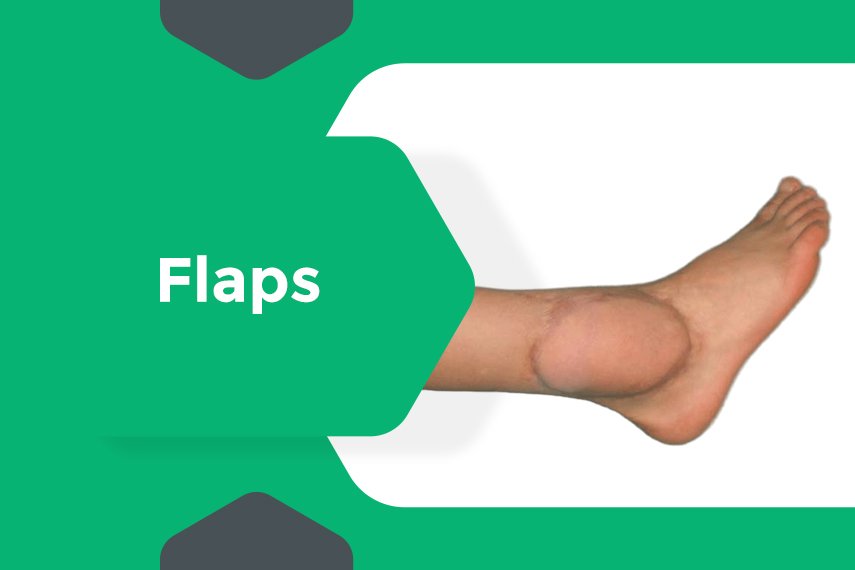Flaps

Introduction
Flap surgery is a critical reconstructive procedure used to treat complex diabetic wounds. By transferring healthy tissue from one part of the body to the wound site, flap surgery enhances blood supply, promotes healing, and restores function. At Surat Diabetic Foot Care, we specialize in various flap techniques to address severe wounds and prevent complications.
Signs & Symptoms
-
Large, deep wounds that do not heal with conventional treatments
-
Exposed bone, tendons, or other underlying structures
-
Persistent infection or necrotic tissue
-
Significant tissue loss or damage
When to Consult a Doctor
-
If you have a wound that is not healing despite standard treatments
-
If there is a high risk of infection or tissue death
-
If the wound is extensive and involves deeper structures
-
If you experience severe pain, swelling, or signs of infection
Treatment Offered
Flap surgery involves the transfer of a flap, which is a piece of healthy tissue along with its blood supply, to cover the wound. The types of flaps used include:
-
Local Flaps: Tissue moved from an area adjacent to the wound.
-
Regional Flaps: Tissue moved from a nearby area but not immediately adjacent
-
Distant Flaps: Tissue moved from a different part of the body.
